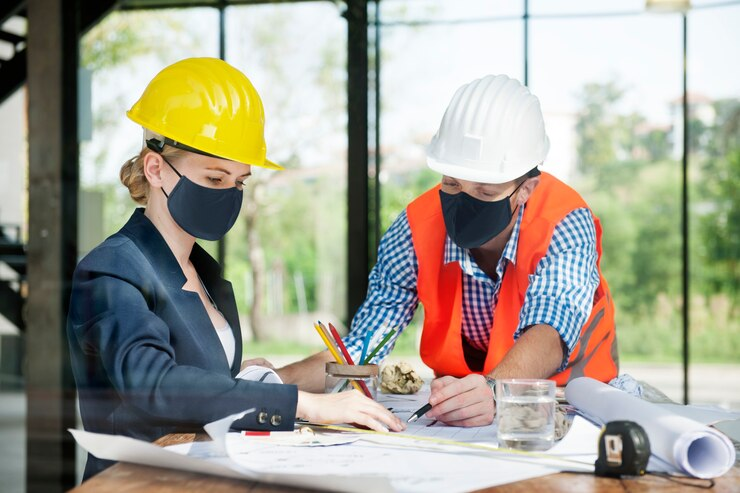
Planning a construction project involves numerous factors that ensure its success, safety, and efficiency. From selecting the right materials to managing the workforce, each step needs careful consideration to prevent delays and cost overruns.
This article provides essential insights into the key considerations when planning a construction project. By focusing on these critical aspects, you can streamline the process, mitigate risks, and achieve your project goals efficiently.
Choosing the Right Building Materials
Selecting appropriate materials is crucial for the durability and safety of a construction project. High-quality materials can significantly impact the longevity and structural integrity of the building. Ensuring a reliable building material supply is essential to avoid project delays.
When choosing materials, consider factors such as climate, building codes, and the specific needs of the project. For example, materials used in coastal areas should be resistant to corrosion and humidity. Partnering with a reputable supplier ensures a consistent supply of quality materials, reducing the risk of interruptions and maintaining the project’s timeline.
Ensuring Accurate Underground Utility Locating
Before beginning any excavation or construction activities, it’s vital to identify the location of underground utilities. This process, known as underground utility locating, helps prevent accidental damage to existing infrastructure such as gas lines, water pipes, and electrical cables.
Accurate utility locating not only ensures the safety of the construction workers but also prevents costly repairs and project delays. Utilizing advanced technology and professional services for utility locating can provide precise information about the location and depth of underground utilities, enabling safe and efficient construction practices.
Implementing Comprehensive Safety Measures
Safety is a crucial factor at any construction site. Adopting strong safety measures helps to avoid accidents and consequently safeguard employees. This entails ensuring that the right PPE is worn, offering safety training frequently, and ensuring compliance with safety measures at the workplace.
Also, clear lines of communication ensure that all the workers are aware of the existence of the risks at work and the safety measures to be adopted. Proactive safety reviews and assessments also ensure that any potential safety concerns are addressed as and when they arise, leaving the workplace safe throughout the project’s lifecycle.
Effective Project Management and Planning
The management of projects is crucial to ensuring the success of a construction project. This includes activity definition, sequencing, and costing. The implementation of project management software can assist with progress tracking, task management, and collaboration with teammates.
Every project should have a detailed time frame, projected milestones, and a backup plan in case of any challenges that are likely to arise. Discussions and briefs keep the project on course, and emerging complications are dealt with swiftly.
Sustainable Practices and Environmental Considerations
It is now time to integrate sustainable practices into construction projects. They involve the use of environmentally friendly products and technologies for construction, and they can be cost effective in the long run.
This encompasses the use of environmentally friendly materials, avoiding resource waste, and practicing energy conservation in design. Both environmental conservation and the improvement of the reputation of the construction project are achieved through sustainable practices.
